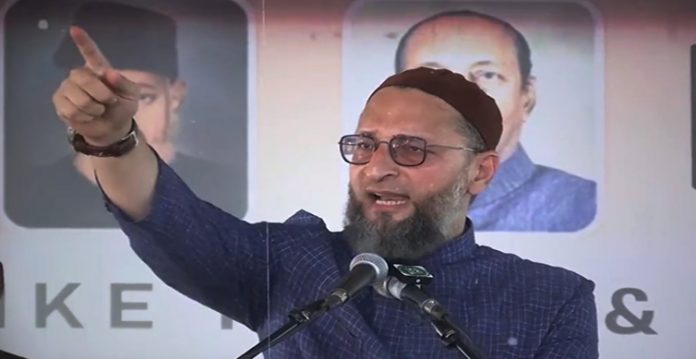This order by the Varanasi district court can lead to endless litigation and recurrences of the Babri Masjid case, pushing the country once again back to the 1980s and 1990s, says AIMIM president Asaduddin Owaisi.
Additionally, the MP from Hyderabad believes that the court’s order and perpetual litigation could destabilize the country.
Afraid that more issues would be raised after the Supreme Court’s ruling in the Babri Masjid case, Owaisi feels his worst fears have come true.
The president of the All India Majlis-e-Ittehadul Muslimeen (AIMIM) expressed fear that the order in the Gyanvapi case will undermine the very purpose of the 1991 Places of Worship Act. He expressed the worry that now everyone will seek judicial intervention alleging they did certain things at a place of worship or were in possession before August 15, 1947.
This order is likely to result in many new conflicts in the country. Everyone will say we performed this (ritual) before August 15, 1947, in the place of worship belonging to another faith, he said.
How can such an order be passed when the Supreme Court clearly stated in the Babri Masjid judgment that the 1991 Act will be part of the Constitution, he said.
The Act of 1991 seals the religious character of all places of worship as they stood on August 15, 1947. Places of worship are prohibited from changing their religious character. The Act specifies that a place of worship existing on August 15, 1947, shall retain its religious character.
According to Owaisi, the Supreme Court should have put an end to the conflict at the outset in light of the 1991 Act and the Babri Masjid case.
The Babri Masjid verdict was based on faith, he recalled. In its ruling, the Supreme Court made it clear that what had taken place in the past on August 15, 1947, would not be reopened.
It is clear from historical records and strong evidence who owns Gyanvapi mosque, the MP argues. When Prime Minister Narendra Modi inaugurated the expanded Kashi temple a year ago, two plots from Muslims were exchanged, he pointed out.
In violation of the 1991 Act, Owaisi alleged that an attempt is being made to change the character of the place of worship.
After a court in Varanasi ordered a videography survey of the Gyanvapi mosque, Owaisi expressed concern about another Babri Masjid.
Only strict adherence to the 1991 Act, he believes, will prevent new disputes.
He said that the lower court’s order amounted to an attempt to change the nature and character of a place of worship, which is prohibited by the 1991 Act.


